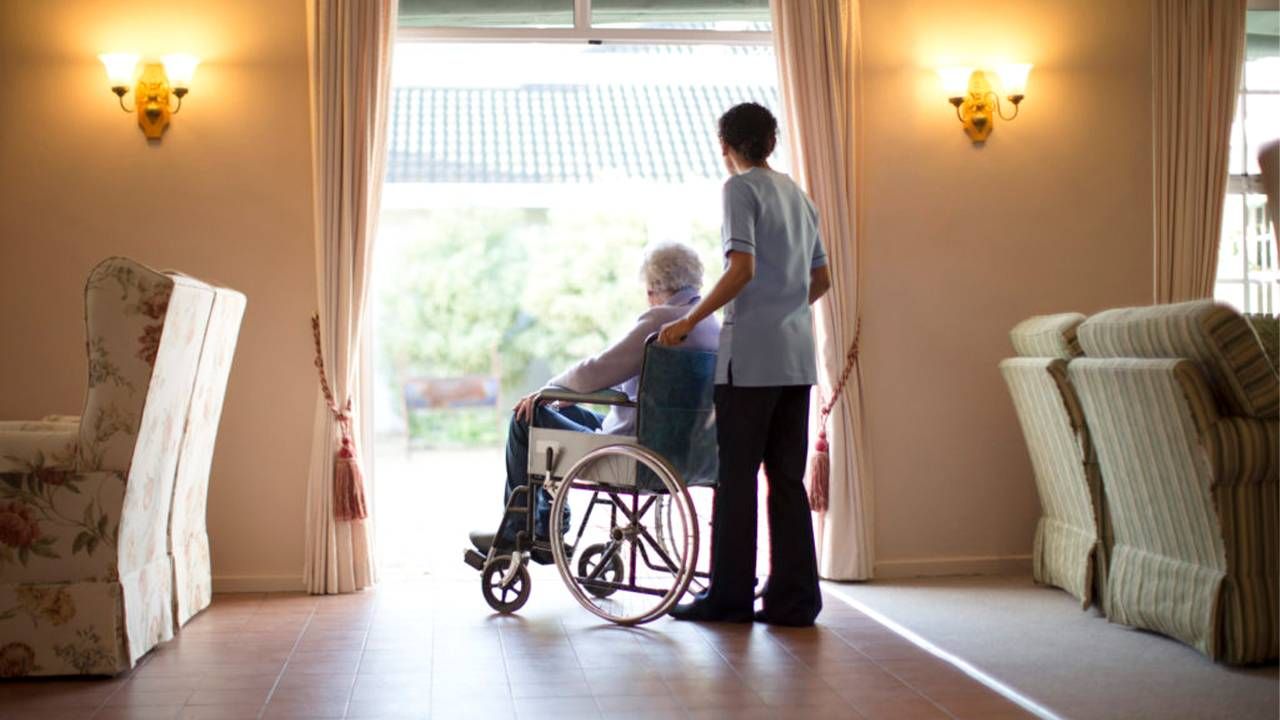How an Investigative Reporter Used Her Sleuthing Skills to Find Memory Care For Her Mom
Here's how to do what she did so you can get the right fit for your loved one in memory care
Choosing a memory care facility for a loved one with dementia can be a daunting task. But how do you go about finding that ideal place?

When I needed to find a memory care location for my mom, I tapped into my investigative reporter skills, which include using all senses and seeking information from independent sources. By putting in the extra time and effort to look beyond the marketing pitch and the glossy brochures, my sister and I found a community that has embraced our mother.
And I think the skills we used can be ones you could emulate if you need to find a memory care facility.
Don't Be Afraid to Talk to Everyone
Our journey to finding a place for mom started after my sister and I realized that, despite a combination of family visits, in-home health aides and adult day care, we could no longer keep our mom safe.
We first began our search by asking friends for recommendations based on their experiences.
I also called the staff at both the home health aide agency and adult day care facility we'd used and asked for their insights. Getting their answers meant reading between the lines, something I run into as a reporter, too. On the phone they'd say, "We're not supposed to make recommendations, but my mom is at 'X' place," or "I'd avoid 'Y' place."
When touring facilities, use all your senses.
Next, we visited several communities to develop a sense of what's standard in memory care and what's unique to a particular community.
If your loved one has Alzheimer's disease or another type of dementia, research shows that following a daily routine while providing a mix of activities is best for emotional well-being and intellectual engagement, says Dr. Carolyn Fredericks, a neurologist at the Yale School of Medicine.
"If it's social, it's good for brain health," she says.
Look for places with visiting pets, entertainment, art classes, exercise classes and games that allow people to socialize together, Fredericks says. "Social interaction is so important for people at these later stages of dementia."
When touring facilities, use all your senses.
If it smells like urine, it could mean the residents are not getting changed promptly (this might be an opportunity to ask about staffing ratios). Are residents talking to each other or with staff, and do they seem engaged?
Take note of how many people living there appear disengaged or sleepy — keep in mind, some with dementia get their nights and days mixed up, so if you see a few sleeping, that's normal; others may take medications that might make them drowsy.
Something else to note: "Alzheimer's patients like to wander," Fredericks says, so if someone is walking alone while you visit, that's a good sign that residents are safe and given autonomy.
Plan On Making Multiple Visits
Once we'd narrowed things down to two places within a 20-minute drive for most of my siblings, we visited multiple times – on weekdays and weekends. We toured together the first time so one of us could listen to the marketing person and the other could observe.
When visiting, you want to see whether staff refer to residents by name and seem to know them and their interests. People living with dementia are more than just their diagnosis.
"They may have had careers [and] families," says Monica Moreno, senior director of care and support at the Alzheimer's Association. "In my experience, when our staff and our residents were able to form those relationships, you could see the care that occurred, the respect between staff and residents."
At one of our visits, I excused myself to use the restroom, while my sister met with the marketing staff. I checked for cleanliness, then I snooped even further: I asked an independent living resident waiting for an elevator how she liked living there and whether it offered what was promised.
Another time, I arrived at shift change and asked a Certified Nursing Assistant (CNA) heading to her car how she liked working there and whether she felt appreciated.
At one of our visits, I excused myself to use the restroom, while my sister met with the marketing staff. I checked for cleanliness, then I snooped even further.
My sister and I also ate lunch at a restaurant near one of the facilities we were considering. The memory care program director had told us staff routinely takes residents out to lunch, so we asked the waitress if the memory care residents had ever eaten there and how the staff interacted with them. The server said they'd dined there several times and that the memory care staff treated the residents with respect, kindness and patience. We were glad to hear it.
Letha Sgritta McDowell, an elder law attorney in North Carolina, also suggests dropping in unannounced to gauge how welcoming staff are.
Ask About Staffing
It's important to ask about staffing ratios, retention and even compensation.
The national average hourly wage for direct care workers in residential care homes such as a memory care facility was $12.67 in 2019, according to PHI National, a nonprofit devoted to promoting quality direct-care jobs for those who work with the elderly and those with disabilities.
"The question about staff retention and salaries speaks to the business viability and the values of the business. If they value their employees, they likely will value their customers," says Crystal West Edwards, an elder law attorney in New Jersey, who helped select a place for her father-in-law.
As for staffing ratios, it can vary. But the ideal ratio is about five residents to one care staff member, according to an article in U.S. News and World Report.
She also suggests talking to families who you see visiting their loved ones. "They're going to tell you how they really feel," she says. Ask open-ended questions, like: 'Could you tell me about how this place has been for your loved one?' Versus, 'Do you like this place?'"
While weighing his choices for a California memory care facility for his dad, Jeff Felson felt reassured that he and his brother were allowed to "just wander around and talk to people without the marketing people" tagging along.
He also spent time watching residents and staff interact. "I was trying to get an idea of what the residents were doing and how the staff was relating to them," Felson says.
After much research, my family and I ultimately chose a place that offered activities well-suited to our mom, a lifelong gardener and observant Catholic — including raised garden beds and weekly Mass on TV.
I think we made a good choice.
The staff has engaged our mom with gardening and plays her beloved tenor Andrea Bocelli. Especially reassuring has been my mom's fondness for certain staff, like the facility's enrichment coordinator: Mom can't remember her name, so instead she calls her "Emily," the name of her eldest granddaughter.
Here are some questions you can ask staff when touring perspective communities:
- What kind of dementia and/or caregiving training does the staff receive?
- When, and how often, does the staff receive training?
- What is your staff-to-resident ratio?
- What behaviors are tolerated and what types of behaviors could lead to a residents’ eviction?
- How are meals served? Are residents given choices?
- Are visiting family members allowed to eat with their loved ones?
- Do you allow outside professionals to assist with care, such as a physical therapist or private- paid aide?
- Does the facility contract with a local doctor and podiatrist to provide care within the facility?
- How long has the facility been owned by the current owner?
- Is the facility for sale?
- What kind of vaccinations are required for staff (flu, COVID-19)?
- What percentage of staff has been vaccinated for COVID-19?
- What infection-control measures do you follow?
- What are your protocols for isolating residents who test positive for COVID-19?
Text from article goes here - 3-5 paragraphs
Text from article goes here - 3-5 paragraphs

Read More

